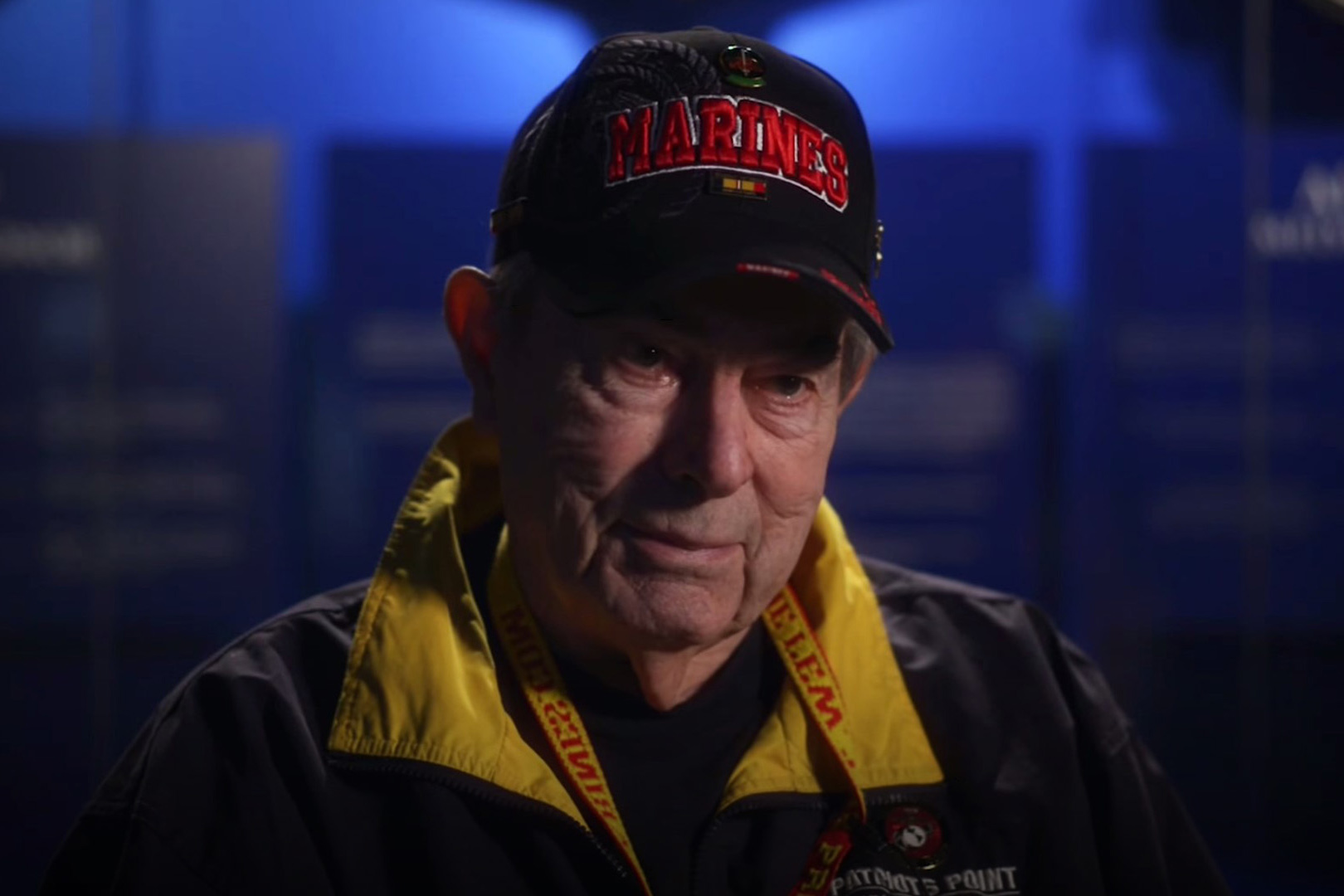

How It's Done:
NEON SIGNS
Grainger Everyday Heroes: Dick Whitaker, U.S. Marines
By Grainger Editorial Staff 5/18/20
Meet Dick Whitaker, U.S. Marine Corps veteran and Purple Heart recipient. As part of the 6th Marine Division, he recalls the battle of Okinawa in 1945 as well as the heroism and sacrifice of those who served alongside him.
Every man I know has at least the purple heart. That's how serious our casualties were. When you're at this for 82 days and you're in an atmosphere that anything you do could get you killed, [in order] to survive it's not good planning, it's just good luck.
My name is Dick Whitaker. I graduated high school in June of 1944, and I entered the United States Marine Corps the following month. On March 13, 1945, which happened to be my 19th birthday, we boarded ships. [I didn't know] where we were going, but we ended up landing on the Island of Okinawa Shima on April 1, 1945.
That was a big surprise because we walked to shore. The landing on Okinawa unopposed. Then we learned the battle plan that the generals had established to defend the island involved allowing us to come ashore and then stopping us on a line called the Shuriyana burrow line which was midway in the island of Okinawa. That's where the major part of that 82-day campaign was fought.
As far as my own experience, I was first assigned to Fox Company, 2nd Battalion, 29th Marines, 6th Marine Division. That was a rifle company and I was in this ammunition carrier in a machine gun platoon. When we went north to relieve an army unit that had become bogged down, that was still my job. On May 17th, my unit, which consisted of this 2nd platoon of Fox Company and my machine gun section, assaulted a place called Sugar Loaf Hill. We took heavy casualties. We were the 11th assault.
When that little engagement was over, my rifle company had gone from 251 men to 61 men. I was hit in the hand by a sniper. I spent two days in a battalion aid station. When I came back [to work] my job changed. I was now reporting into a company commander. His runner was hit by a sniper and killed, and I became the company runner. We were there a total of 101 days and were in combat 82 [of those] days. My regiment in the end registered an 82% killed or wounded ratio. You know there's an old saying that the dead ones are still there. The real heroes are still there. I believe that. I'm only here because I'm lucky.
I arrived home at 3:00 in the morning on Memorial Day, 1946. Great day to come home from a war.
![]()
The information contained in this article is intended for general information purposes only and is based on information available as of the initial date of publication. No representation is made that the information or references are complete or remain current. This article is not a substitute for review of current applicable government regulations, industry standards, or other standards specific to your business and/or activities and should not be construed as legal advice or opinion. Readers with specific questions should refer to the applicable standards or consult with an attorney.






